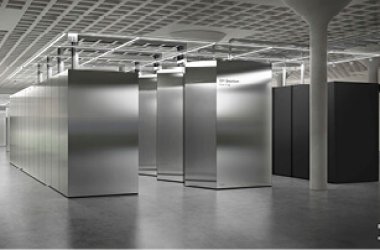 Jeff Barber, director of worldwide storage product sales, systems and technology group at IBM, says he pities companies that are not virtualising to take advantage of the big data explosion.
Jeff Barber, director of worldwide storage product sales, systems and technology group at IBM, says he pities companies that are not virtualising to take advantage of the big data explosion.
“It’s a phenomenally important competitive advantage if you’re turning data into useful information. We all know there is a lot of data to capture just from a transactional standpoint during business, but the really important question is – what do you do with it?” Barber said.
“In the very competitive world we live in, it’s a lot better to understand what information that data can bare. It’s so much more important that you take that data and you make sure you have the right products on the right shelves based on the buying patterns of your customers. I pity the company that isn’t taking this data and turning it into something they can actually use to their advantage,” he added.
Despite analysts marking 2012 as the year of big data and virtualisation, Barber said it’s been out there a lot longer than people realise.
“Big data has been out there for years. I think somebody coined a term that people think is very catchy, and all of a sudden we’re using ‘big data’. Data growth rates have been huge for a long time – it’s not something that is a new phenomenon at all. However, in open-operating environments we still see just a horrific under-utilisation of assets,” he said.
“Whether we call it big data this year, or information explosion three years ago, the phenomenon is not stopping. All the various outputs of information, like Facebook or Twitter, are not going away. People’s use of the internet and information is not going away. We really think that it’s important to bring true storage virtualisation to the market. We’ve had it in place basically since 2003,” he added.
Whilst promoting the importance of virtualising data storage, Barber emphasised the careful approach that is necessary to do it right.
“If I give anyone any advice, I’d say this is a journey and not an event – it is not a big bang. People like to think they can go and buy a product, implement it and suddenly they’ve got virtualisation. It doesn’t work like that – there is an awful lot of work you have to do bringing applications in at the appropriate time when you have the appropriate windows,” he said.
“You get the basic infrastructure built and then you start migrating applications as you can. The beauty of it is once you’re at that point and you virtualise an application, you then have the ability to add capacity and things like swapping vendors can happen over a weekend,” he added.
IBM has recently developed its own security division in its software group, and Barber said it is very important companies get solutions in to protect virtualised storage and cloud.
“Hacking is a new form of terrorism and it’s not going away. You really need look into security, because if you don’t have those layers, you will be exposed. If you are moving down that cloud path and you haven’t spent time making sure that you have security over that entire infrastructure, you can expose yourself,” Barber said.
“I would really recommend people to take the time and make the investment in getting guys in that understand what the exposure is, and what the security infrastructure should look like. Most people don’t and then get hacked; but if they’d have taken a little bit of time and gone to people who know, they could have avoided 90% of exposure,” he added.





